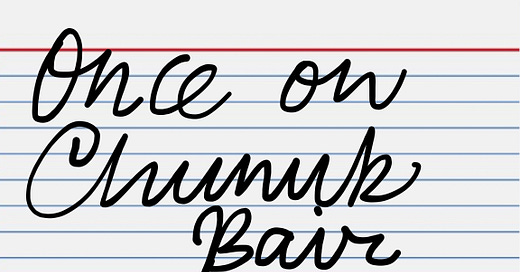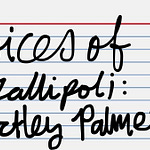For the last two years I’ve been leading a project called Voices of Gallipoli.
Its purpose is to remember the experiences of kiwis at war by speaking their words out loud at Anzac commemorations and events.
Why? I dunno. I was drawn to it. Called, I suppose, by something beyond my ego, which is the only way I ever end up doing anything that’s worthwhile.
I have the rights to Maurice Shadbolt’s book of the same name. It features twelve verbatim accounts - oral histories - from veterans who fought at Gallipoli and lived to tell the tale.
I read them many years ago and was moved and intrigued - for reasons that I hope you’ll see/hear on this post.
The detail and the energy of the descriptions was like nothing I’d ever read of war before - and I’ve been interested in reading about war ever since I got my hands on my grandad’s leather bound collection of The War Illustrated - a contemporaneous collection of weekly magazines from World War II.
I’ve since read literary accounts, and historical accounts, and biographies.
Each has merit. Nothing in my experience - with the possible exception of A Woman in Berlin - has ever moved me with the strength of these spoken histories. Shaped by Shadbolt from rambling interviews in order to create a beginning, middle and end, but all the words are Vic’s.
So, over the last two years they’ve been read aloud by me.
Primarily in recordings and at the Gallipoli Association conferences in London. They’ve been read aloud all over New Zealand, and even, remarkably, in Antarctica (I had to create a short excerpt for the Base Commander because they read it outside).
Vic Nicholson’s account is the last, and for my money the most vivid and powerful of 12 accounts of unparalleled vividness and power.
So there you have it.
If I were smarter I’d probably paywall this one and make some more money converting my treasured free subscribers.
But the sin of Simony - charging for grace - weighs heavy on my conscience on this occasion.
But you should know there is the Shadbolt Estate to pay - and fair enough - thank God he did the work of recording and preserving these accounts.
So I am left to ask the honourable way - of religious and students throughout the ages (apparently the academic gown, and its hood comes from a tradition of students knocking at a door then turning their backs in humility/shame for the householder to drop coins in the scholar’s hood) - I beg you.
The other thing you could do to help, today especially, which is not an important day in terms of the public consciousness, is
But most importantly - just take a few moments to yourself and listen to what Vic remembers
As a small way of remembering him and all those who experience, and have experienced armed combat.
I’m not so naive as to think that the world will or can ever live in absence of armed conflict. I do think it’s dangerous for us individually, and as a general public to forget what it’s like to be personally on the hook for fighting for one’s homeland, or ideals.
Abstraction creates the risk of disorder.
If you can’t see/hear it for any reason, you can read the transcript. I was just correcting it and it’s pretty good.
Arthur.














